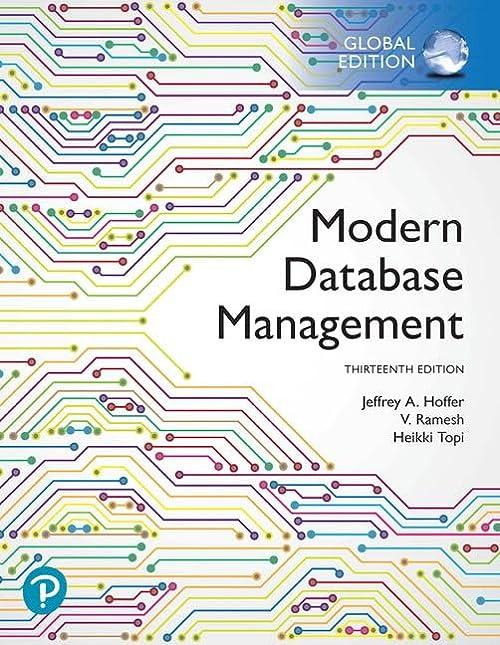Question
An Automated Teller Machine (ATM). The bank customer uses an ATM card that is tied to their bank account (accountID) to access the ATM. This
An Automated Teller Machine (ATM). The bank customer uses an ATM card that is tied to their bank account (accountID) to access the ATM. This access depends on the bank customer having already set up a Personal Identification Number (PIN) for that card. The ATM has a cash and check input area to receive deposits, and a cash output area to dispense withdrawn cash. The remote ATM machine must validate all access with the banks central system. The central bank system contains information on each bank customer including a unique identifier (bankCustomerID), first name, middle name, last name, phone number, and home address. Each bank customer has two types of bank accounts: Checking and Savings. Each account has a unique identifier (accountID), the owner (bankCustomerID), and the current balance (accountBalance). Our company has decided to build new ATM software that handles system access and banking transactions. We need to analyze the requirements and design that system.
*Use Case Modeling o Identify 3 use cases related to using an ATM as described above. o Draw a use case diagram for the 3 use cases.
*Class and Object Modeling o Create a Class Diagram for the Use Cases, a single Class Diagram that models supports all the Use Cases. o Create a CRC Table for each Class that shows its Name, Responsibility and Collaboration(s). o Create an Object Diagram for each of the Use Cases based on what you have created so far.
Glossary: ATM: A remote machine that provides, in association with the banks central system, banking transactions for a bank customer.
Bank Central System: The main system within the bank that holds all data and manages (processes) all transactions.
Banking Transaction: Services offered by the bank that allow a bank customer to check account balance (how much money is in the account), deposit cash or checks (put money into the bank), and withdrawal (take money out of the bank)
Use case specification Example: Use case: ID: Brief Description: Primary Actor: Secondary Actor: Precondition: Main Flow: a. b. c d. e. f.
PostCondition: Alternative Flow:
Step by Step Solution
There are 3 Steps involved in it
Step: 1

Get Instant Access to Expert-Tailored Solutions
See step-by-step solutions with expert insights and AI powered tools for academic success
Step: 2

Step: 3

Ace Your Homework with AI
Get the answers you need in no time with our AI-driven, step-by-step assistance
Get Started


